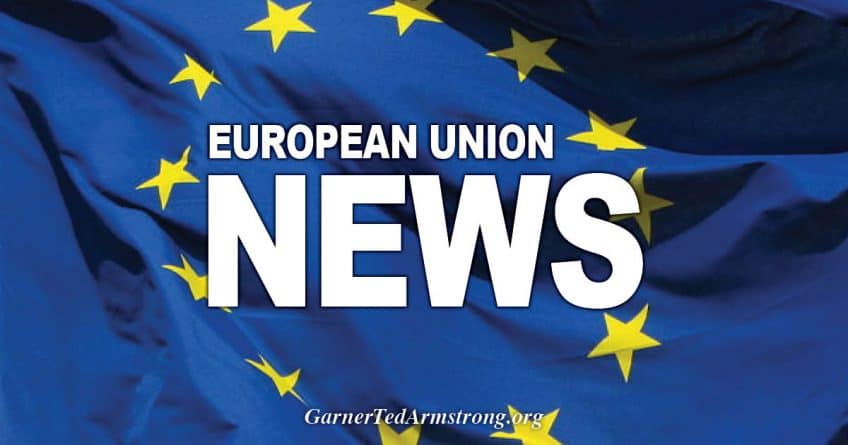
UK Prime Minister Boris Johnson drives a JCB through a symbolic wall during an election campaign event at a JCB plant, Uttoxeter, England, December 10, 2019. – Copyright Ben Stansall/Pool via AP
The promise of freedom to “take back control” of the UK’s borders, money and laws struck a chord with many voters in the run-up to the Brexit referendum.
Nearly 18 months after the UK left the EU, and half a year since its new independence took effect, what has Boris Johnson’s government done with its new autonomy? And what does it plan for the future that is different from its previous life as an EU member?
In some areas, such as immigration policy, the changes are striking, now that the EU’s “freedom of movement” rule no longer applies. Farming too is bound for a shake-up outside the Common Agricultural Policy.
But in other matters, the extent of real change is unclear. New trade deals have been hailed as among Brexit’s most tantalizing prizes. Yet the likely impact of the UK’s first such accord — with Australia — is hotly debated, and details remain to be thrashed out.
The ability to sever ties from the EU’s rulebook has also been much vaunted. The UK is free to set its own regulations, subject to conditions imposed by the Brexit trade deal. Some of the government’s supporters have called for a “bonfire” of Brussels red tape. So how far will it go in practice?
“Perhaps the most striking feature of post-Brexit Britain is how similar it looks to pre-Brexit Britain,” Simon Usherwood, Professor of Politics at the Open University, told Euronews. “For all the talk in the years since the referendum about taking back control, there have been relatively few clear examples of this resulting in radical change in policy.”
Immigration: stricter rules, fewer workers
Before Brexit, millions of EU citizens moved to the UK to work and settle. Those already living in the UK by the end of 2020 have had to register, and the deadline has now expired for them to apply for formalized residency.
But new arrivals into the country from Europe now fall under the same rules as people from the rest of the world; they no longer have preferential treatment. Instead, the government is implementing a new points-based system to attract skilled workers.
The impact of coronavirus pandemic restrictions on movement and the new post-Brexit rules have resulted in fewer job candidates from the EU. One labour market survey in June found that worker availability had plunged at the fastest rate since 1998, supply unable to meet surging demand as pandemic restrictions are eased and the economy opens up.
In particular, sectors such as hospitality and agriculture that used to rely heavily on EU workers have reported serious recruitment problems.
In June, logistics and food and drink industry groups wrote to the prime minister warning that a chronic shortage of lorry drivers could disrupt supplies as coronavirus restrictions were eased. The UK’s departure from the EU was one of several factors listed.
As well as the pandemic, “the uncertainty of Brexit and future rights to live and work in the UK” has forced many of the thousands of drivers from the EU who used to be based in the UK to go back to their countries of origin, the joint letter said. “The vast majority have not returned nor are they expected to.”
The government’s response to the shortage has been to allow drivers to work longer hours temporarily, a move opposed by transport industry groups.
The end of the free movement principle has led to thousands of Europeans being refused entry to the UK, while some were even detained and deported on arrival, prompting an outcry and a pledge from the authorities to stop the practice.
The government has published a bill to tighten UK asylum rules post-Brexit. However, the UK has left the EU’s Dublin scheme, which allows countries to return asylum seekers to an EU state they passed through. It is now struggling to reach new agreements with countries willing to accept those it wishes to deport.









